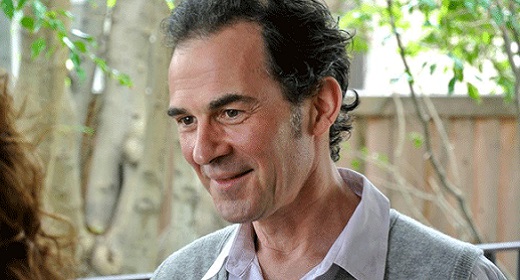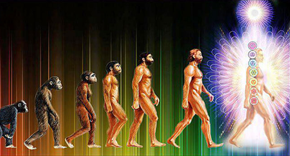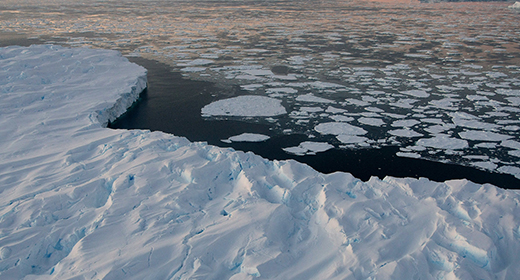Q. Is a teacher necessary?

(Rupert Spira) In almost all cases, yes.
For most people, the identity is so intimately and exclusively associated with a body and a mind, that the help of a friend in pointing out our true identity as Awareness, is necessary.
Even for those apparent ones who spontaneously awaken to their true nature without the help of a friend or teacher, the presence of such a friend after this non-objective recognition of our true nature, will greatly facilitate the realignment of the mind, body and world with this new perspective.
Q. How do you regard the people who come to your meetings and what can they expect to get from you?
I see them as I see myself, that is, as Awareness. What can they expect? They can expect to be seen and treated as Awareness, not as a separate entity. This may or may not involve conversation, but that is not really important.
Q. Do you consider that your teaching is the same as traditional Advaita, Neo Advaita, the Direct Path or something else?
In all these paths or teachings the Love and Understanding that is inherent in the knowing of our own Being, is present. How it is expressed varies enormously from one case to another. I identify myself with the Love and Understanding that is at the heart of all true teachings, not with any particular form or expression.
Whatever I hear or see that comes from this Love and Understanding, irrespective of the form in which it is delivered, melts my heart over and over again.
Q. How do you go about teaching what you teach?
If I am taking a meeting I sit in silence and wait for the first thoughts to appear, usually in the form of a short contemplation on the nature of experience.
If a question is asked I go in my imagination to the heart of the question. I become the question. I offer this question to my experience and respond from there.
It is the same with written responses. I feel the question deeply and respond from experience.
Q. What do you tell your students to do (practices, mental preparation, meditation, etc.)?
I do not have a prescription, formula or set practice. However, broadly speaking there are two aspects: firstly, to notice that what we are, is Awareness, that is, to notice that ‘I’ is both ever-present and aware, without limit or location, and secondly that this Awareness is the not just the witness but also simultaneously, the substance of all seeming things.
The belief and the feeling that we are something other than Awareness, that is, a separate independent entity, seems to veil this knowing of our own Being and, as a result, veils the Peace, Happiness and Love that reside there. In our meetings we first know ourselves as impersonal, ever-present Awareness and, taking our stand as that, proceed to investigate and explore the beliefs and feelings that suggest otherwise.
Q. Will these practices lead them to Self-realization/enlightenment?
No activity (or lack of activity) of the mind will bring about enlightenment. The best the mind can do is to explore its own belief systems and come to the conclusion that it knows nothing about reality although, at the same time, it is an expression of it.
When this is clearly seen the mind comes effortlessly and spontaneously to an end and in that moment we find ourselves open, available, unknowing and present.
In this openness there is no waiting and no expectation because the mind is not present. There is simply Being or Presence. And whatever it is that knows this Presence is Presence itself. That is the only one present there to know itself. That is, there is only Presence knowing its own Being. It knows itself.
When the mind returns it claims credit for this non-objective taste of our own Being and starts to devise all sorts of methods and practices to experience again the Happiness and Peace that were felt in its absence.
So, at a verbal level the teaching addresses these erroneous beliefs and feelings erroneous in the sense that they revolve around a fictitious entity. This involves an investigation of the belief of being a separate entity at the level of the mind and an exploration of both the ‘me’ feeling at the level of the body and the ‘not me’ feeling at the level of the world. That is, it is an exploration of the true nature of reality in all realms of experience.
However, this is not undertaken in order to bring about a result, but rather simply to see clearly the nature of experience.
If we think we are a person, we will inevitably feel that this silence was brought about by an activity of the mind. However, later on it becomes clear that the mind did nothing. Presence projects the mind and Presence withdraws the mind.
To begin with it seems as if Presence only knows its own Being when the mind is not present. Later on it becomes clear that Presence is always only knowing its own Self.
Q. What do you think about Ramana’s practice of Self-enquiry?
The natural state is simply to be, without resisting what is by inverting upon an inward self or trying to replace what is by pursuing objects in the world.
However, if we think and feel that we are a separate entity, resisting and searching are unavoidable. In other words, we will be searching for the Happiness we believe is missing, rather than simply being.
As such, having deeply tasted the futility of the search for Peace or Happiness in the objects of the body, mind and world, the very best we can do as this apparent entity is to explore the entity we consider ourselves to be, the one who is in search. This enquiry resolves itself in the abidance of our own Being.
Thus, Self-enquiry is the highest activity that a mind that is still in search can undertake. However, Self-enquiry doesn’t end with the discovery that we are impersonal, ever-present Awareness. It continues as an impersonal activity that facilitates the realignment of the mind, body and world with the experiential understanding of ourselves as impersonal Awareness.
Q. Would you say that a time frame is required for the teaching to mature (as in traditional Advaita and the teacher-guru relationship) or would you say some kind of understanding could arise at any time (as in Neo Advaita and the satsang formula)?
Both! Enlightenment is always instantaneous. In fact, it is timeless, although it may or may not be preceded by a period of investigation.
After the non-objective recognition of our own Being, a process takes place in time that re-orchestrates, as it were, the mind, body and world with this new experiential understanding.
If there has been a long period of investigating and exploring these matters prior to the recognition of Being, the body and mind may already be well aligned with this experiential understanding so that when this recognition occurs not much adaptation is necessary.
However, if this recognition takes place spontaneously with little or no preparation, the mind and the body may be utterly disorientated by this recognition and may, as a result, require longer to become realigned with it.
However, there are no rules or formulas. Anything is possible!
Q. How should one lead one’s life if seeking enlightenment?
According to the strength of one’s desire for enlightenment. In fact, everyone is searching for enlightenment, which is simply the search for Happiness. Most people search for Happiness in the realm of objects, that is, in the realm of the mind, body and world.
Once it has become obvious that Happiness does not reside in the realm of objects, all the energies that were previously directed outwards towards them are now gathered and turned towards their source.
At a certain point this becomes all consuming and a great intensity arises in one’s heart.
What it is that ignites this love of truth, I do not know. It is truly a gift of Presence.
Q. So what is Consciousness?
Consciousness is the intimacy of our own Being. It is referred to as I, although this ‘I’ is sometimes mistaken for a body or a mind. It also has many other names, such as, Peace, Happiness, Love and Beauty.
It is whatever it is that is seeing these words and experiencing whatever else is being experienced in this and every moment.
Upon investigation it is also found to be just not just the witness of all seeming things but also their substance or essential nature.
At this point we may ask what then are these seeming things, only to realise that they were never present, as such, to begin with.
Now we are left we the understanding that Consciousness is all. But what is this all. There is no all. There is only Consciousness and when this is clear there is no longer a need to conceptualise it, for there is nothing else with which to contrast or differentiate it. Any conceptualisation at this stage would be another subtle objectification.
Here we are simply left in silence.
Q. What do you mean by the following statement: Consciousness veils itself from itself by pretending to limit itself to a separate entity and then forgets that it is pretending. If Consciousness is all there is, and all there is, is Consciousness, how can something that is omnipotent, omniscient and omnipresent forget itself. That sounds like a double-bind/contradictory situation.
Consciousness never truly forgets itself. It never knows anything other than its own Being. For this reason, ignorance, that is, the ignoring of the true nature of experience, is said to be an illusion. It never really happens, but only seems to.
To whom does Consciousness seem to be absent? To the mind.
It is the mind that rises up (within Consciousness and made out of nothing other than Consciousness) and imagines that Consciousness, which properly pervades all experience, in fact only pervades one small part of experience, that is, a body.
In other words, the mind imagines that Consciousness is limited to and located within the body and with that belief, the I am which properly belongs to Consciousness alone, seems to become I am the body.
As a result of this belief that Consciousness is limited to a body, everything that is not that body becomes not me. Not me is simply another name for the world. In other words, the world is the name we give to the apparent forgetting of Consciousness.
So, from the point of view of Consciousness, which is the only true point of view, Consciousness is never bound, limited, veiled, forgotten or obscured. However, from the imaginary point of view of the mind, Consciousness seems to be lost and found, veiled and unveiled, bound and liberated.
However, the mind’s point of view is only a valid point of from its own point of view!
The statement that Consciousness veils itself from itself by pretending to limit itself to a separate entity and then forgets that it is pretendingwas said to convey this understanding.
Q. What is reality?
Reality is whatever it is that is real in experience. Reality cannot disappear because that into which it would disappear would have to be more real that it. For instance, gold is the reality of the ring, because (within the limits of the metaphor) the ring can change its name and form and become, for instance, a necklace, but the gold itself remains as it is, unchanged and ever-present.
Similarly, when an apparent object disappears, the substance out of which it was made, remains. The true substance of experience, its reality, does not come and go. It is uncaused (because if it were caused by something, that something would have to be more real that it) and is not known by anything other than itself.
From the point of view of the mind, there are names and forms. From the point of view of experience itself, there is only one ever-present reality and that is sometimes called Consciousness or Awareness, because it is aware and present. However, it is more intimately known as I.
And what is it that knows Consciousness or ‘I’? Consciousness or I!
In other words, there is nothing other than Consciousness or ‘I’ knowing/being itself.
And because there is no possibility of lack or dis-ease in this knowing of itself, it is also know as Happiness. Because there is no possibility of agitation within itself, it is also know as Peace. And because there is no possibility of another in the knowing of its own Being, it is also know as Love.
Hence Peace, Happiness and Love, which is simply the name we give to the knowing of Being, are the reality of all experience.
There is only That.
Q. You often talk about the fact that there is only experience. Indeed, the subtitle of your book is Contemplating the Nature of Experience. Can you expand on that?
All we know is experience. All things possible to be thought, sensed or perceived fall within experience. In other words, all we know of the mind, body or world, is through experience.
Experience goes into the make of everything. The apparent individual is also, like everything else, only known through experience and, therefore, its essential nature must be identical to the essential nature of everything else that is experienced. What is the essential nature of that experience?
If we go deeply into the essential nature of experience, that is, of our self and of all seeming things, we find only Consciousness. That is, Consciousness finds itself.
In fact, Consciousness is always only knowing/being/loving itself. It is only from the imaginary point of view of an imaginary entity that Consciousness seems to be lost and found.
Q. How do we cope with our experience and come to an understanding of reality?
We cope with our experience by exploring it. We do not try to change or manipulate it in any way. We simply look. What is truly there?
In this disinterested but loving contemplation, all the accretions that the dualising mind superimposes upon our essential experience slowly, in most cases, fall away and the reality of experience is left shining by itself.
However, it is not the mind that understands reality. It is reality that stands under the mind giving it its support. It also pervades the mind, giving it its substance and seeming reality, allowing it to be whatever it is from moment to moment.
Q. How do we acquire the knowledge that will enable us to appreciate the nature of reality? Isn’t that knowledge itself dualistic? How is this reconciled?
Knowledge (if by knowledge you mean knowledge in the mind) can never know the nature of reality.
Knowledge is of things, that is, of thoughts, sensations and perceptions. If we go deeply into the essential nature of such knowledge, we find only knowing. And if we go deeply onto the experience of knowing, we find only Consciousness.
The ‘I’ that would acquire such knowledge or who would appreciate the nature of experience, is found to be made only of thinking.
When thinking comes to an end its substance remains, just as the screen remains when the image fades. When thinking reappears it is known to be made only of Consciousness, just as the image is known to be made only of the screen.
The image can never know the screen just as thinking can never know Consciousness. However, the ‘element; of knowing or experiencing that pervades all thinking, is Consciousness alone. There is no other substance to thinking, sensing or perceiving than that.
Q. Is there a god? If so, what do you mean by that?
It is not that there is a god. It is rather that God is Isness itself. It is the Isness of all of all seeming things. And when there are no seeming things apparently present, Isness just remains as it is, pure Being.
In order to know that there is Being, Being must be known. That which knows or is aware of Being is Being itself. Nothing outside of itself could be present, or could be, with which Being could be known. So, Being knows itself. It is the knowing of itself.
Hence Knowing and Being are one or, more accurately, not two. That is, Consciousness and Being are not two.
To say it is one, is to say one thing too much.
That which remains over when the seeming ‘two’ dissolves is what is known as God. But when the seeming multiplicity and diversity reappear, it is still only God that knows and is known.
There is nothing but God knowing, being and loving its own infinite, eternal Being.
Q. Is there free will?
Consciousness is freedom itself. The separate entity is non-existent. Therefore there is no entity present who could either have or not have free will.
Experience is too intimate and immediate to admit of one who may stand back and orchestrate it like a conductor, willing, choosing, deciding, etc. There is no time present for such a one to exist in.
The idea of free will is an inevitable side effect of the belief in a separate entity. If we believe there is a separate entity, we will by definition, whether we know it or not, believe there is free will. If, as this apparent entity, we then believe there is no free will, then that is simply a belief that we superimpose onto our much deeper conviction that we are a separate doer, chooser, decider etc.
Once the separate entity is seen clearly to be non-existent, the idea of free will dissolves.
All that is left is the freedom of Consciousness.
Q. Do you believe in reincarnation?
I don’t believe in incarnation, let alone reincarnation!
Incarnation is the concept that Consciousness was born into and resides in a body. It is never an experience. To believe that concept is ignorance. Unhappiness is the result.
Q. In your book, you quote Paul Cézanne: ‘Paul Cézanne said, Everything vanishes, falls apart, doesn’t it? Nature is always the same but nothing in her that appears to us lasts. Our art must render the thrill of her permanence, along with her elements, the appearance of all her changes. It must give us a taste of her Eternity. Could you explain what you mean in terms of how that relates to art?
Cézanne is suggesting that our only knowledge of nature is through intermittent sense perceptions. Sense perceptions are fleeting and in that sense the apparent solidity of the world or nature is, in fact, falling apart, vanishing from moment by moment. The world is our perception of the world and it vanishes as soon as a perception vanishes. It is only a thought that collates a string of imagined perceptions and creates out of them the apparently solid and permanent world, existing in time and space.
However, Cézanne also acknowledges that there is something in nature that is always the same. Whatever that something is cannot be a perception because every perception is unique and intermittent. So he is pointing to the fact that there is something that is always the same that runs through, as it were, the experience of intermittent perceptions that we call nature or the world.
Furthermore, Cézanne suggests that this something, this ever-present element that runs through all experience, is not just a neutral background but rather that it is a thrill. That is, it is joyful. He is suggesting that the reality of nature or the world is pure Joy, Ananda, Happiness itself. Cezanne was a pure non-dualist at least when he was painting!
So, Cezanne is suggesting that the purpose of art is to take nature’s elements, its changing appearances (colours, in his case) and create a form that directly points towards that which is ever-present in our experience.
In fact, he suggests that it is more than just an indication or a pointing. He suggests that art is more intimate than that. He suggests it should give us the taste of the ever-presence or reality of experience, nature’s eternity.
In this way, he acknowledges the power of an object, be that object a word, a painting, a piece of music, whatever, that truly comes from the recognition of the true nature of experience.
Q. There is another aphorism that struck me in your book: Once we see that everything is Consciousness Maya still dances but it is a dance of love not seduction. So what, finally, is love?
The appearance of objects, time, space, etc., continues but ignorance, that is, the belief that there is something other than the presence of Consciousness, ceases. At that moment, the apparent multiplicity and diversity of the world, which once seemed to veil the knowing of our own Being, now turns round, as it were, and instead expresses or celebrates it.
Appearances no longer seduce us into believing that duality, separation, objects and others are real in their own right and therefore it is known that they can never threaten us nor be a source of Happiness.
Psychological fear and the desire to find Happiness and Love through objects, activities and relationships comes to an end. As a result, the world is no longer hostile and others are no longer a source of love or hurt. There is no longer any aversion towards or manipulation of objects and people and, as such, we can give ourselves utterly, intimately, fearlessly, to all experience.
This unreserved giving of our Being to all seeming things is known as Love.
It is from this understanding that William Blake said, ‘Eternity is in love with the productions of time.’
Love is what remains of experience when all sense of separation, boundary, duality, otherness, etc., dissolves. At that moment it is realised that it was all that was present to begin with.
Love is simply that which truly is.









































